- Details
- Category: Senator Julie A. Morrison News

SPRINGFIELD — With the rise in digital communication among children, threats from online predators have become more frequent and sophisticated. To help law enforcement respond faster and more effectively, State Senator Julie Morrison’s new law expands the authority of Illinois State Police (ISP) to investigate and stop online child exploitation.
“Law enforcement should have every tool available to track down those who try to harm children,” said Morrison (D-Lake Forest). “This new law ensures Illinois State Police can work seamlessly with other agencies to pursue online predators, no matter where they’re located.”
The new law grants ISP’s Division of Criminal Investigation broader jurisdiction to pursue online child exploitation cases and work alongside local task forces across the state. It will usher in improved response times, close jurisdictional gaps and strengthen coordination between agencies working to protect children from digital threats. The measure is modeled off of Alicia’s Law, a national initiative that empowers specialized law enforcement units to track and prosecute predators who target children online.
Read more: Morrison-led Alicia’s Law strengthens protections against online child exploitation
- Details
- Category: Senator Meg Loughran Cappel News
 SPRINGFIELD – A new law led by State Senator Meg Loughran Cappel will streamline local municipal services, allowing the city of Joliet to absorb the Southeast Joliet Sanitary District.
SPRINGFIELD – A new law led by State Senator Meg Loughran Cappel will streamline local municipal services, allowing the city of Joliet to absorb the Southeast Joliet Sanitary District.
“Joliet is well equipped to ensure a smooth transition between the sanitary district and city, leading to better local governance and removing duplicate systems in the area,” said Loughran Cappel (D-Shorewood). “This is a commonsense switch that will bring greater efficiency and sustainability to how Joliet manages its essential services to the community.”
Under House Bill 663, the Southeast Joliet Sanitary District will dissolve and the city of Joliet will absorb its assets, powers and responsibilities, with any additional assets going to Will County.
“This is a practical move that cuts red tape and makes local government more efficient,” said State Representative Larry Walsh, House sponsor of the bill. “By consolidating services under one system, Joliet can modernize its infrastructure, respond faster to community needs and eliminate waste in how essential services are delivered.”
House Bill 663 was signed into law Friday and goes into effect Jan. 1, 2026.
- Details
- Category: Senator Robert Peters News
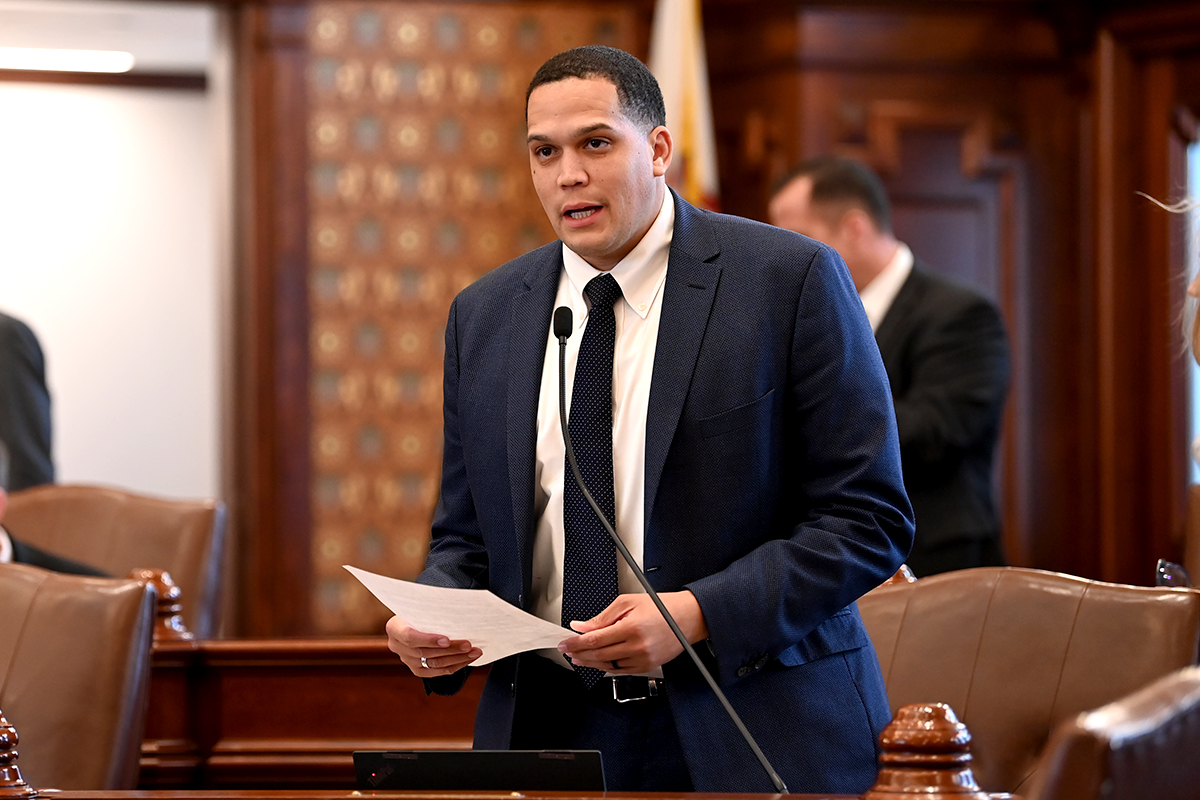
SPRINGFIELD — To reinforce the supportive role of the Department of Children and Family Services, State Senator Robert Peters led a new law to remove the agency’s authority to operate its own law enforcement agency.
“Families who are in need of DCFS’ services are already experiencing hardship – the last thing they need is to be treated like criminals by an agency meant to be offering support,” said Peters (D-Chicago). “This law ensures these families receive the respect and care they deserve and that DCFS helps the way it was intended.”
Peters’ law removes the department’s statutory authority to appoint personnel to act as peace officers in counties with more than 500,000 people. Instead, it reaffirms that any law enforcement needs involving DCFS will be handled by local or state police.
Read more: Peters’ law reinforces DCFS as family support agency
- Details
- Category: Senator Sara Feigenholtz News
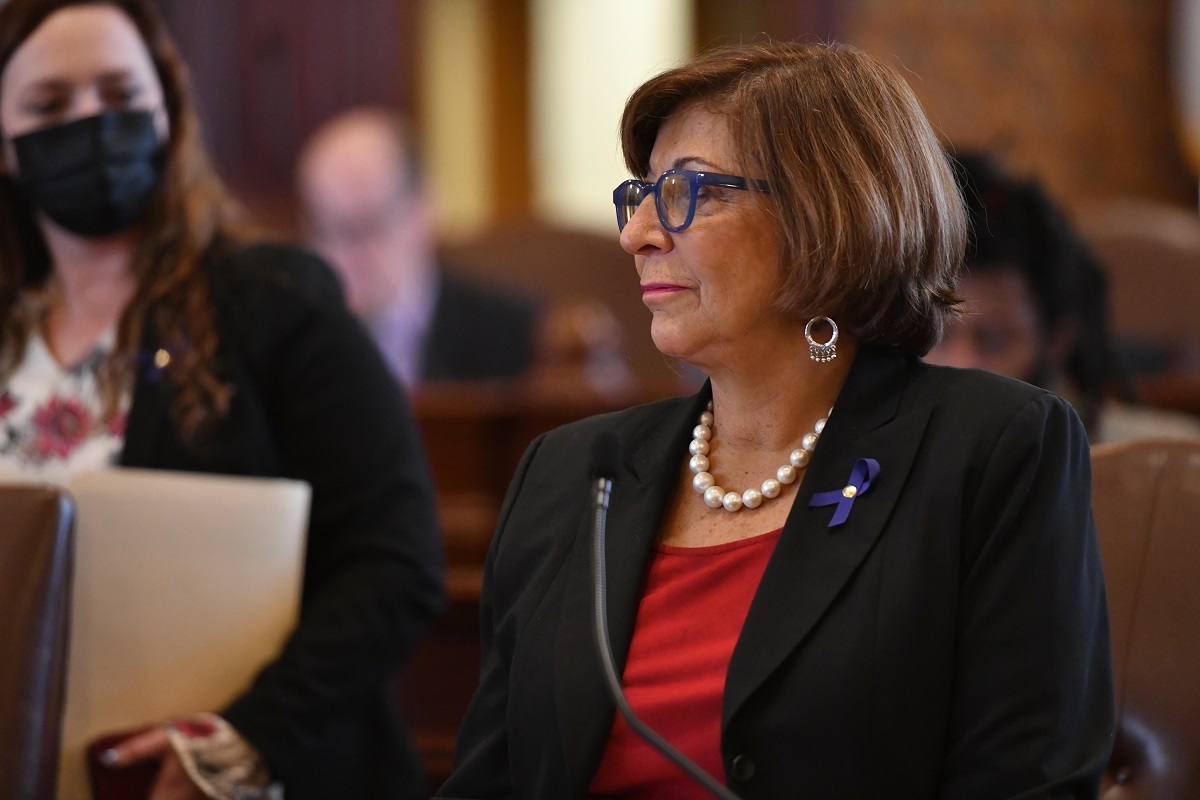
SPRINGFIELD — State Senator Sara Feigenholtz championed a newly signed law strengthening Illinois’ efforts to address the teacher shortage by removing unnecessary hurdles that drive people away from becoming an educator.
“For years, parents and teachers in my district have been feeling the crunch of the teacher shortage,” Feigenholtz (D-Chicago) said. “As we continue to equip our teachers with resources and support, we need to make sure they don’t face setbacks because of family or medical obligations.”
The law, originally Senate Bill 1584, comes in response to a local resident who took family and medical leave during her pregnancy when she was licensed under short-term approval. For many educators, including Feigenholtz’s constituent, short-term approval in a new subject area is a path to becoming a more versatile teacher who can teach more classes — but it typically only lasts three years.
Read more: Governor signs Feigenholtz initiative to remove hurdles for new teachers
- Details
- Category: Senator Ram Villivalam News
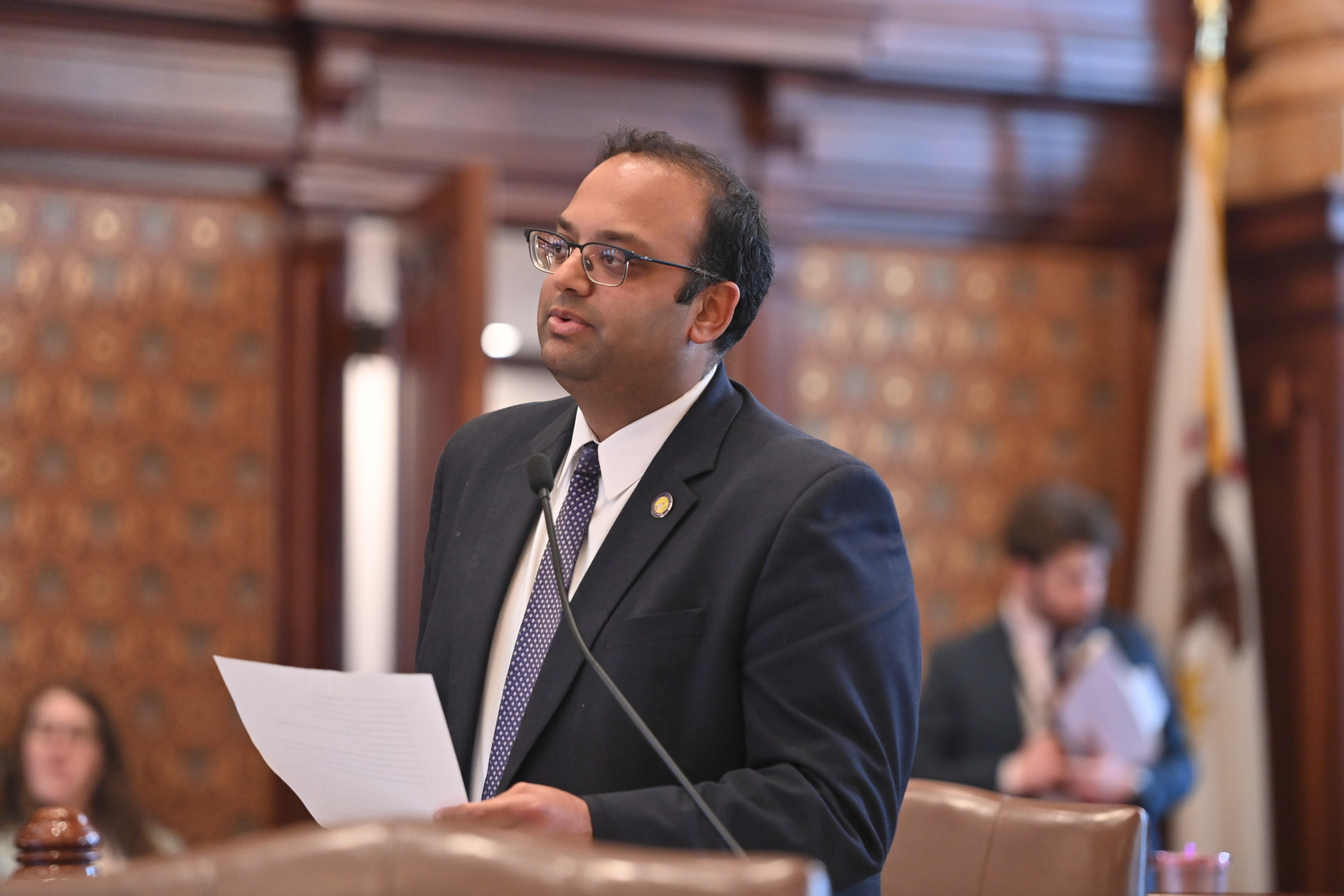
SPRINGFIELD — To assist schools when scheduling major school or athletic events, State Senator Ram Villivalam championed a law that will provide schools with calendar dates indicating when a portion of students may be absent due to cultural or religious reasons.
“The 8th District is a diverse community where portions of the student body may be absent due to cultural or religious holidays throughout the school year,” said Villivalam (D-Chicago). “It is imperative that we continue to support our students and their ability to participate in events outside of the school calendar. This law ensures schools and athletic associations are provided with the information needed when scheduling events.”
The new law requires the Illinois State Board of Education to include on its website and distribute to all schools a list of days during the school year that a portion of the student body may be absent due to cultural or religious reasons. This law would not allow for closures or excused absences due to cultural reasons but would assist school districts with planning events.
Read more: Villivalam law to provide school districts with cultural and religious calendar dates
- Details
- Category: Senator Julie A. Morrison News
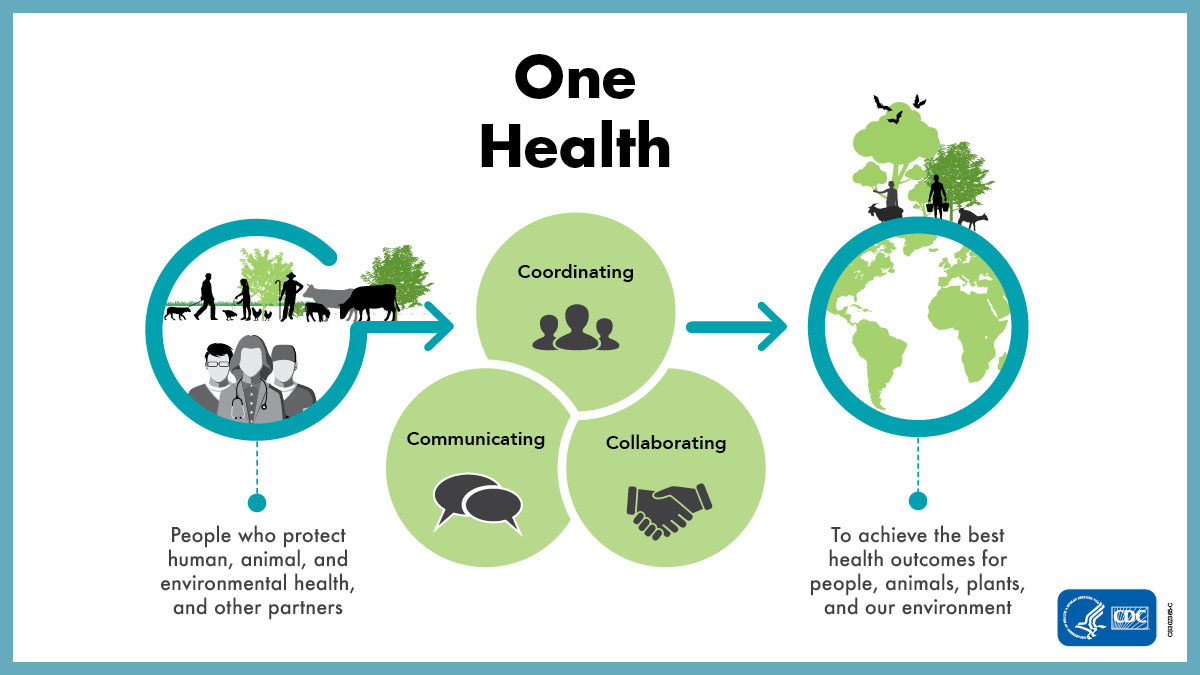
SPRINGFIELD — With increasing threats to public health emerging from the intersection of human, animal and environmental factors, a new law spearheaded by State Senator Julie Morrison will create the One Health Commission — a unique collaboration among Illinois experts to improve communication and coordination across fields.
“This law addresses a gap in how our state responds to complex health threats,” said Morrison (D-Lake Forest). “By bringing experts together through the One Health Commission, Illinois will be better equipped to plan for and respond to outbreaks before they become widespread emergencies.”
The new law establishes the One Health Commission within the Illinois Department of Public Health that will promote collaboration among physicians, veterinarians and other scientific professionals. The commission will work closely with state agencies to recommend best practices to promote interdisciplinary communication, establish methods for the response to and recovery from disease outbreaks in animals and humans and develop ways to monitor emerging health threats, among other responsibilities. A report of recommendations will be submitted to the governor and General Assembly by Jan. 1, 2028.
Read more: State commission to strengthen public health preparedness established under Morrison law
- Details
- Category: Senator Mike Simmons News
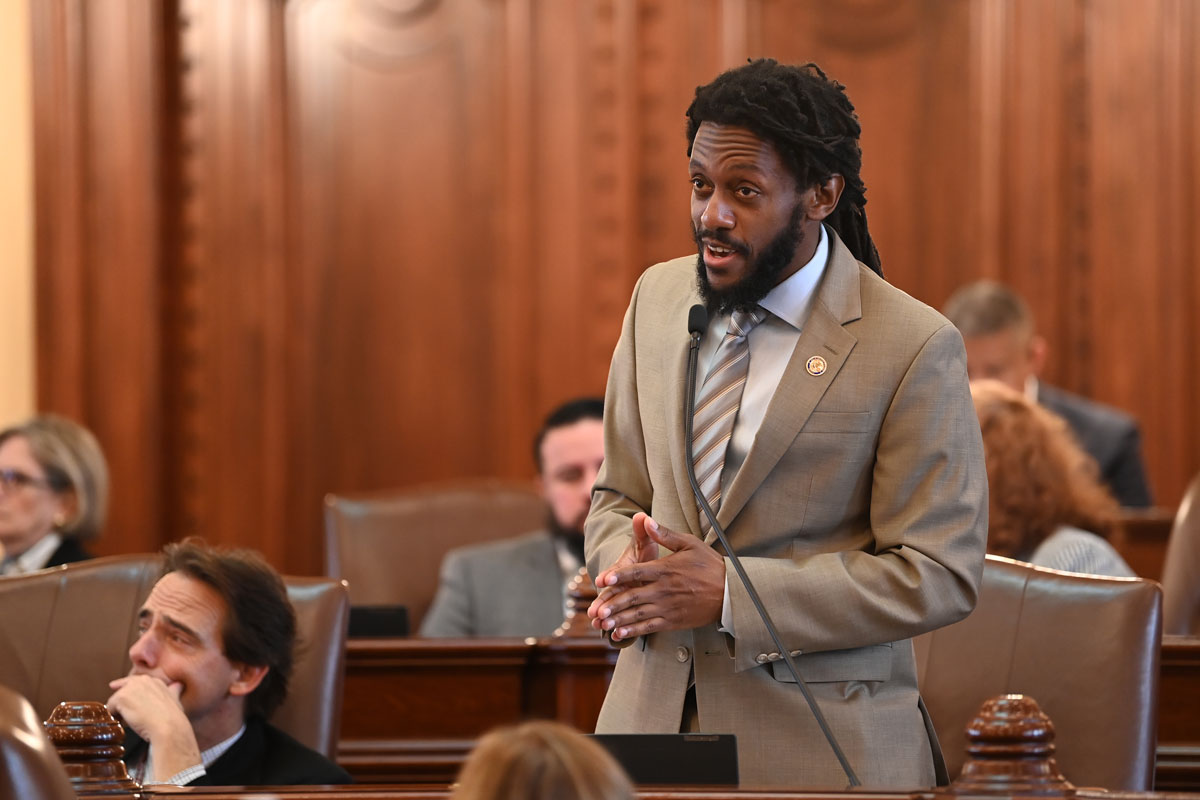 SPRINGFIELD – To remove barriers to unhoused residents, State Senator Mike Simmons passed into law the removal of notary fees to obtain a state ID.
SPRINGFIELD – To remove barriers to unhoused residents, State Senator Mike Simmons passed into law the removal of notary fees to obtain a state ID.
“With no form of legal identification, unhoused individuals cannot access housing, jobs, or transit and this law will help,” said Simmons. “This bill makes it one step easier to obtain state identification, which in turn means folks will have quicker access to jobs, transportation, and housing.”
Prior to this law, application fees for standard Illinois state IDs are waived for unhoused individuals, but their application must be accompanied by a notarized affirmation. This is a difficult task for individuals with little financial resources, as notary fees can cost up to $25.
- Details
- Category: Senator Ram Villivalam News
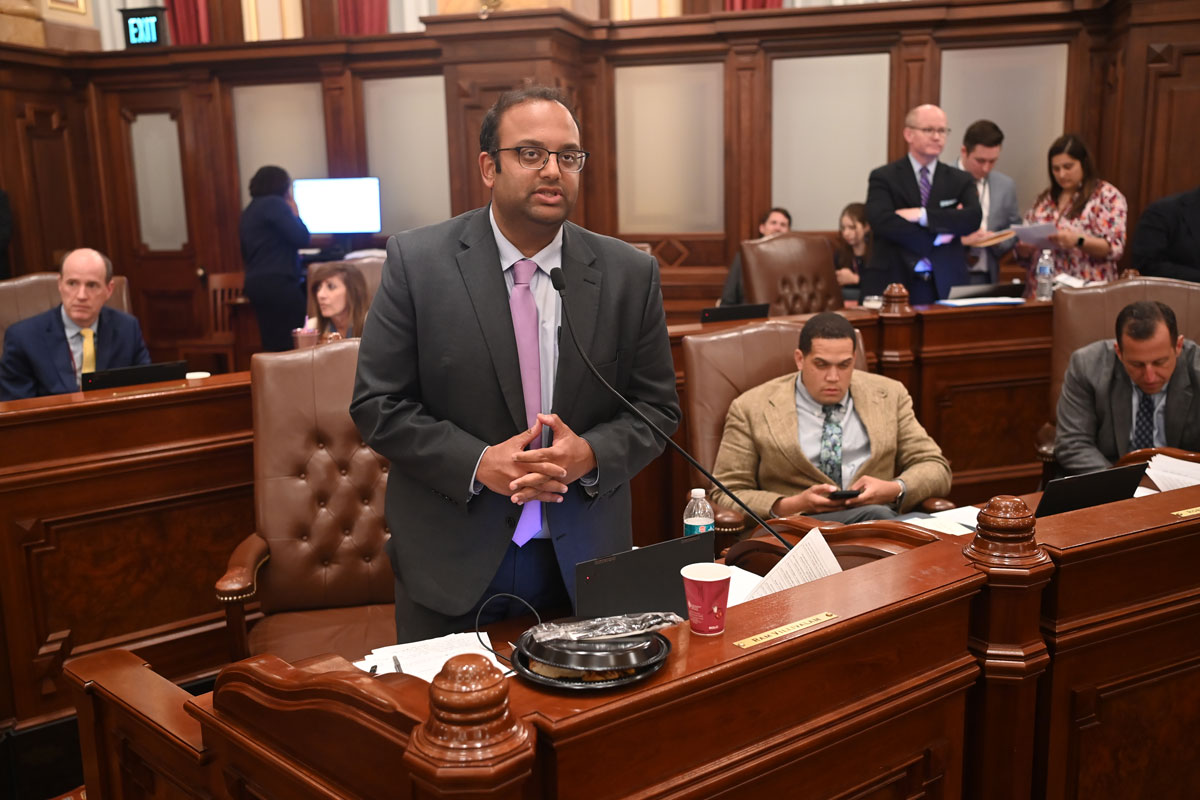 SPRINGFIELD — As artificial intelligence continues to become more widely used, State Senator Ram Villivalam is leading the charge with a new law ensuring those seeking mental health treatment are safeguarded from loopholes allowing AI in health care.
SPRINGFIELD — As artificial intelligence continues to become more widely used, State Senator Ram Villivalam is leading the charge with a new law ensuring those seeking mental health treatment are safeguarded from loopholes allowing AI in health care.
“It is imperative that we provide our communities with the critical mental health support they need and are seeking,” said Villivalam. “By setting guidelines for the use of AI in mental health treatment, we are investing into the well-being of communities, the quality of care they receive and the standards we hold our mental health care professionals to.”
Read more: Villivalam law to safeguard residents from use of AI in mental health treatment
More Articles …
Page 18 of 768













 © 2026 Illinois Senate Democratic Caucus
© 2026 Illinois Senate Democratic Caucus